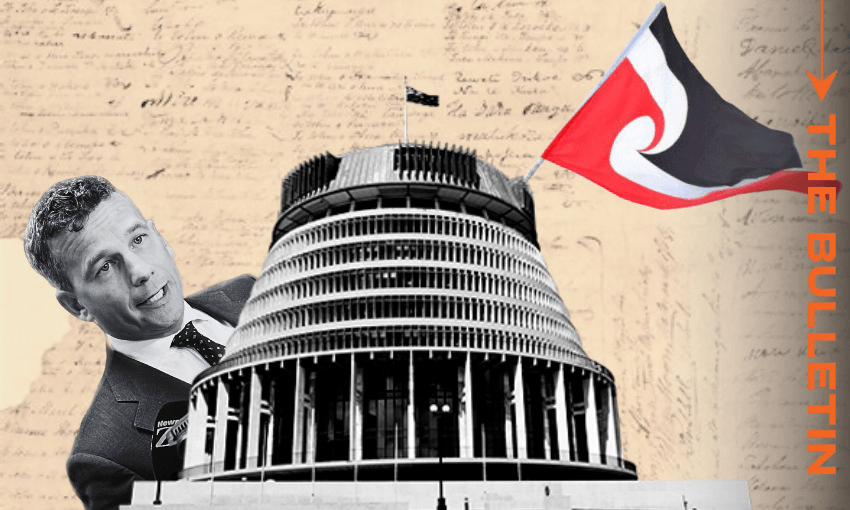The government says its review will help the tribunal navigate the coming decades. Critics say it’s an ideological attack in disguise, writes Catherine McGregor in today’s extract from The Bulletin.
To receive The Bulletin in full each weekday, sign up here.
A half-century check-up…
The Waitangi Tribunal is undergoing its first-ever formal review, nearly 50 years after the body was established. Announced last week by Māori development minister Tama Potaka, the review aims to examine whether the tribunal’s scope, processes and legislative mandate remain fit for purpose. Potaka stressed the review would not predetermine the tribunal’s future but was necessary due to a ballooning workload and the near-completion of historical settlements. The four-person (two Māori, two Pākehā) Independent Technical Advisory Group, chaired by Bruce Gray KC, is due to provide recommendations by September, with legislative proposals expected before the end of the year.
… Or a political ambush?
Opposition parties have rushed to condemn the review. Labour’s Willie Jackson said it was outrageous that “the most anti-Māori government I’ve seen in my lifetime is now conducting a review of the watchdog that at least keeps a lot of Māori, a lot of New Zealanders safe”. The Greens’ Māori development spokeswoman Hūhana Lyndon called it a “disgrace” while Te Pāti Māori’s Tākuta Ferris said he was “absolutely disgusted” by news of the review.
Others offered more nuanced perspectives. Speaking to Te Rina Kowhai for Te Ao Māori News, former Treaty negotiations minister Chris Finlayson said a review was long overdue, but it should focus on the many bureaucratic hurdles to full implementation of the tribunal’s findings. Writing in the NZ Herald (paywalled), Audrey Young argued that accusations of a “hatchet job” were premature: “To suggest any organisation is above review is not remotely realistic in 2025.”
Also speaking to Te Ao Māori News, Treaty law scholar Carwyn Jones agreed the tribunal must evolve but warned the government’s framing of the review as a return to “original intent” – as promised in the NZ First-National coalition agreement – was misleading: “It seems … they think the original intent of the tribunal was to look at historical claims” when that was never the case, he said. At the time of the Waitangi Tribunal’s establishment in 1975, it only heard claims relating to current government actions. The historical claims process began in 1985, after the Lange Labour government expanded the tribunal’s mandate to investigate grievances dating back to 1840.
Act says the quiet part out loud
While Potaka has maintained a measured tone, coalition partner Act has not held back. In a media release welcoming the review, David Seymour described the Tribunal as “increasingly activist” and in need of being put “in its place”. The rhetorical chasm between the two coalition partners is the inspiration for Hayden Donnell’s piece in The Spinoff this morning, in which he quips that Seymour has shown remarkable dedication to combatting the government’s own PR. “Media organisations like to say they can cut through spin like Aragorn’s sword Andúril through orc flesh,” he writes, “but few of them demolish government messaging more brutally than the second-largest party in the government.”
A long history of hostility
Act’s antipathy toward the Waitangi Tribunal is nothing new. The party has long portrayed the tribunal as an unelected force undermining democracy, with Seymour last year floating the idea that it should be “wound up for its own good”. In March, former Act leader Richard Prebble resigned from his short-lived appointment to the tribunal, telling Stuff’s Joel Maxwell he didn’t initially know what he was getting into and “was not aware how extreme their reinterpretation of the Treaty is”. Treaty lawyer Annette Sykes was among those who suspected Prebble’s tribunal tenure was a publicity stunt: “Was this really only a media ploy on the part of the Act party? If it is then it really shows how desperate they are.”
More reading:
